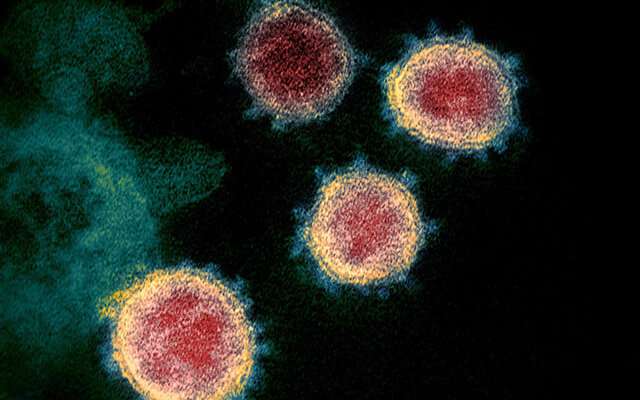This article has been reviewed according to Science X's editorial process and policies. Editors have highlighted the following attributes while ensuring the content's credibility:
fact-checked
peer-reviewed publication
trusted source
proofread
Newly-discovered antibodies can neutralize COVID-19 variants, potentially prevent future coronavirus outbreaks

Exceptionally potent antibodies that can neutralize virtually all known variants of the COVID-19 virus—including omicron, as well as other dangerous animal coronaviruses that could potentially cause future outbreaks—have been discovered in a new study just published in Science Advances.
The international team led by Duke-NUS Medical School, with scientists from the National University of Singapore, the University of Melbourne in Australia and other partner institutions, isolated antibodies from the blood of a recovered SARS patient who was thereafter vaccinated against COVID-19. This unique combination of prior coronavirus infection and vaccination generated an extremely broad and powerful antibody response capable of stopping nearly all related coronaviruses tested.
"We sought to address the lack of therapeutic monoclonal antibodies for treatment and prophylaxis of high-risk COVID-19 patients, as all previously approved monoclonal antibodies have lost efficacy against newly emerged SARS-CoV-2 variants," explained senior author Professor Wang Linfa, a bat virus expert with Duke-NUS' Emerging Infectious Diseases (EID) Program. "This work provides encouraging evidence that pan-coronavirus vaccines are possible if they can 'educate' the human immune system in the right way."
The newly-published study describes how six antibodies were obtained that could neutralize multiple coronaviruses, including SARS-CoV-2, its variants alpha, beta, gamma, delta and omicron, the original SARS virus, and multiple other animal coronaviruses transmitted from bats and pangolins.
"Three antibodies stood out as exceptionally broad and potent, capable of neutralizing all tested SARS-related viruses at very low concentrations," said first author Dr. Chia Wan Ni, a former postdoctoral fellow in Prof Wang's lab who now works with Singapore start-up CoV Biotechnology.
The most powerful antibody, named E7, neutralized both SARS-CoV and SARS-CoV-2 sarbecoviruses, animal sarbecoviruses and newly emerged SARS-CoV-2 variants, such as omicron XBB.1.16.
It was shown to neutralize via a unique mechanism of binding that bridges two parts of the coronavirus' spike protein that it uses to invade cells. This appears to lock the spike in an inactive conformation and block the shape-shifting process the virus requires to infect cells and cause illness.
"The neutralizing potency and breadth of the E7 antibody exceeded any other SARS-related coronavirus antibodies we've come across," noted Dr. Chia. "It maintained activity against even the newest omicron subvariants, while most other antibodies lose effectiveness."
The findings help unmask the weak spots of coronaviruses and provide templates for designing vaccines and drugs that work against COVID-19 variants and future coronavirus threats.
"This work demonstrates that induction of broad sarbecovirus-neutralizing antibodies is possible—it just needs the right immunogenic sequence and method of delivery," said Prof Wang. "This provides hope that the design of a universal coronavirus vaccine is achievable."
With its high potential to neutralize sarbecoviruses that emerge in the future, the E7 antibody may become a strong asset in helping to prevent the next pandemic caused by sarbecoviruses. The researchers plan to further assess the antibody's potential as a prophylactic and therapeutic agent against existing and future coronaviruses.
"This collaborative effort led by Prof Wang and his team expands our capability in protecting against coronavirus threats that currently threaten human health, as well as new viruses that may emerge in the future," said Professor Patrick Tan, Senior Vice-Dean for Research, Duke-NUS Medical School. "This underscores the pivotal role basic science research plays in advancing knowledge, with the goal of discovering new approaches to transform medicine and improve lives."
More information: Wan Ni Chia et al, Potent pan huACE2-dependent sarbecovirus neutralizing monoclonal antibodies isolated from a BNT162b2-vaccinated SARS survivor, Science Advances (2023). DOI: 10.1126/sciadv.ade3470

















